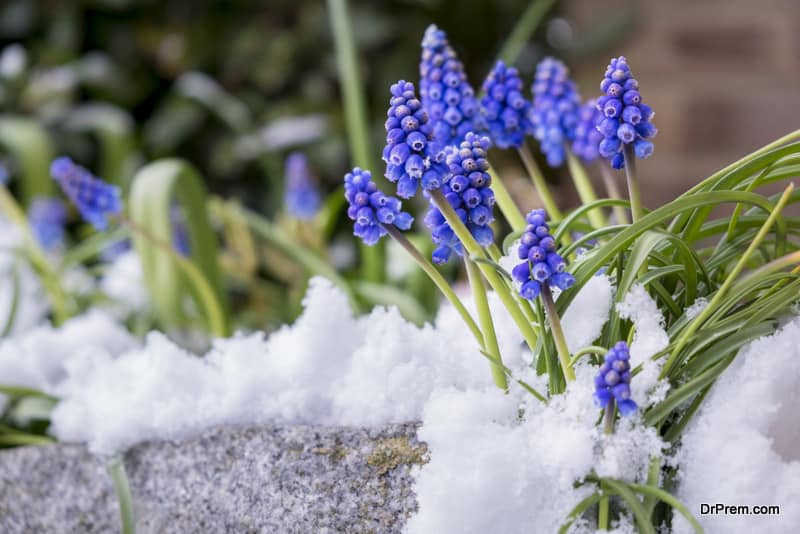With the fall setting in, the time has come for us to start preparing our garden in order to protect our plants in the frosty winter season. Not many individuals realize the importance of preserving the garden during the winter season and thus, end up having to grow their garden from scratch when spring approaches. A few simple and easy to follow gardening tips would help you keep your plants standing strong and healthy throughout winter.
Get rid of dying, diseased plants
Your first step to preserving your garden for the winter would be to remove dying and diseased plants. If not, plants with insect and disease problems could potentially spread these issues all over the garden during the winter. So remove them completely and throw them away. You need not save them for the compost either.
Get rid of Slimy Leaves
Carefully inspect your plants and cut out slimy, matted leaves in order to prevent bugs and diseases from wintering in your patch. Pests are attracted to slime and can spread throughout the garden if you leave them unattended to. Also, make it a point to remove weeds so that your plants get enough water to remain moist throughout winter.
Get the compost ready
Your soil will not get the nutrients it receives daily during winter. Make up for this by spreading at least 2-5 inches of compost all over the garden. In addition to enriching the soil with nutrients, this would ensure that your garden survives the harsh winter weather. So what do you use to make this compost? Add in all the leaves of the plants you raked up in the garden, manure and food waste from your kitchen. A good balance between green and brown materials will help your soil remain healthy throughout winter.
Leave the Pretty Plants Alone
Many gardening experts out there believe that you need to keep pretty plants that stand up straight, untouched. For instance, it is best to leave plants with pretty seed heads, like thistles, sunflowers, blackberry lily and coneflowers alone during winter. They would not only look pretty in the winter sun, but also provide food and sanctuary for birds and butterflies. So leave these plants alone and contribute to the next generation of birds and butterflies in the process.
Cut back the Perennials
As winter approaches, start cutting down your perennials until they are just about 4-5 inches tall. Wait for the first frost to arrive before doing so. This way, you will allow the plant to transfer the energy stored in the branches to the roots. This would therefore, prevent the plat from dying in winter.
Don’t hurry with Winter Protection
Sometimes adding the protective mulch to the soil earlier than needed can turn out to be disastrous for your garden. If you put protective mulch before the first frost, you could risk turning your garden into a nice, cozy haven for mice to live in and eat your plants throughout winter. So wait for it to get a bit cold first. This way, the mice would have found other homes before you start putting down the mulch.
Retain Late Harvest Veggies
You may want to wait for the first frost to set in before clearing out your vegetable garden. A little bit of cold is actually good for your veggies. Vegetables like kale, broccoli and Brussels sprouts can handle a bit of cold very well and literally get sweeter with a little frost. So wait for a few days of winter to pass before harvesting them.



